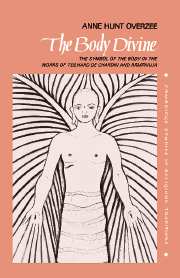Appendix II - Teilhard de Chardin on the Mass
Published online by Cambridge University Press: 11 December 2009
Summary
For Teilhard, the Mass is a deeply symbolic ritual in which the individual offers him or herself, through the sacramental elements, to become part of the consecrated body of Christ. He believes that she or he participates through this act in the very life and spirit (which, of course, he refers to in terms of consciousness) of the Lord. His cosmic understanding of the process of the Mass is most clearly set forth in his ‘La Messe sur le monde’, but he refers to it at intervals throughout his writings. One passage in ‘Mon univers’ clearly explains how he views the relationship between the consecration of the host and the consecration of the world:
There is but one Host, ever growing greater in the hands of a long succession of priests — the Host of bread, I mean, [which] is continually being encircled more closely by another, infinitely larger, Host, which is nothing less than the universe itself — the universe gradually being absorbed by the universal element. Thus when the phrase ‘Hoc est Corpus Meum’ is pronounced, ‘hoc’ means ‘primario’ the bread; but ‘secundario’, in a second phase occurring in nature, the matter of the sacrament of the world, throughout which there spreads, so to complete itself, the superhuman presence of the universal Christ.[…]
- Type
- Chapter
- Information
- The Body DivineThe Symbol of the Body in the Works of Teilhard de Chardin and Ramanuja, pp. 156Publisher: Cambridge University PressPrint publication year: 1991

